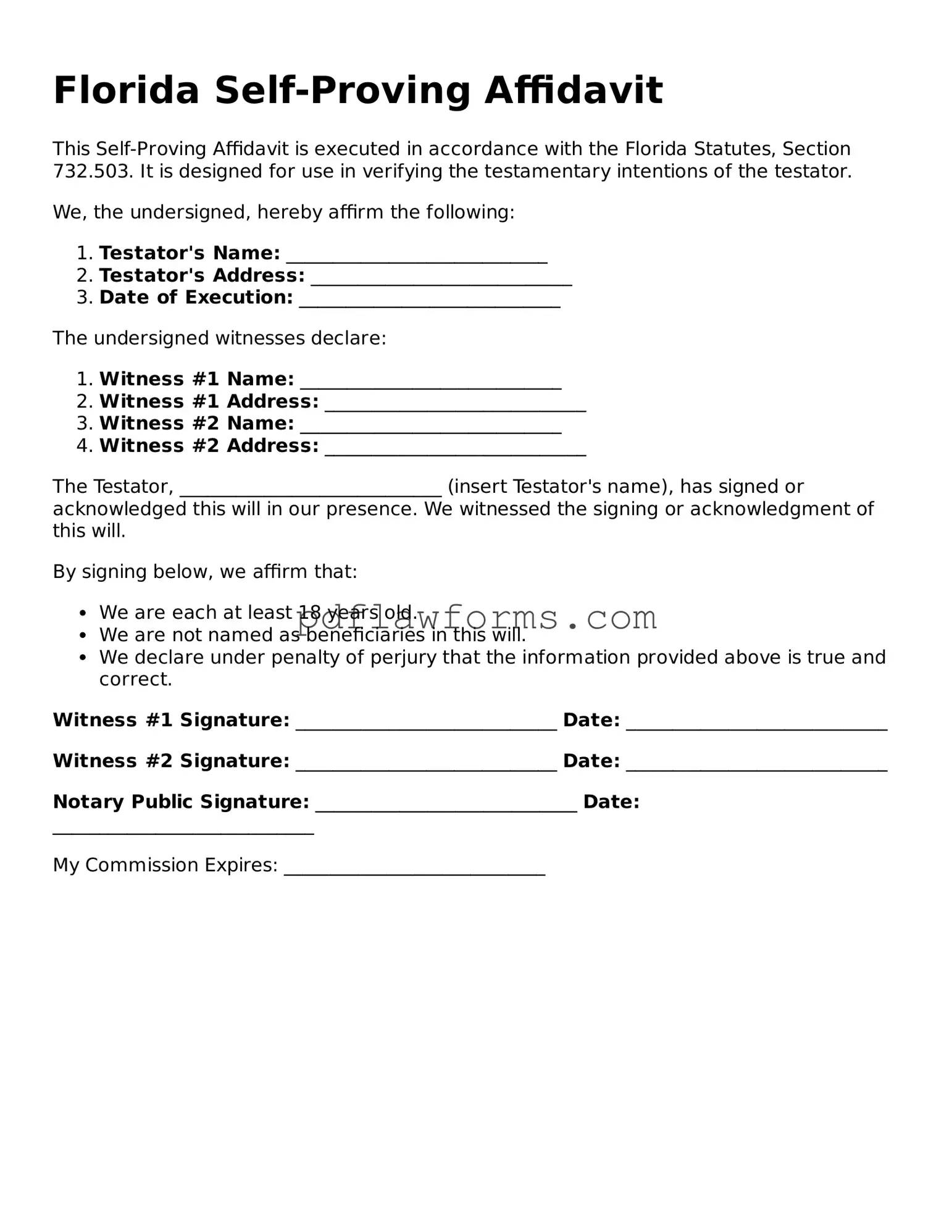Self-Proving Affidavit Form for the State of Florida
The Florida Self-Proving Affidavit is a legal document that allows a testator's will to be validated without the need for witnesses to testify in court. This form simplifies the probate process, making it easier for heirs to access the deceased's assets. To ensure your will is self-proving, consider filling out the form by clicking the button below.
Make My Document Online

Self-Proving Affidavit Form for the State of Florida
Make My Document Online
You’re halfway through — finish the form
Edit and complete Self-Proving Affidavit online, then download your file.
Make My Document Online
or
⇩ Self-Proving Affidavit PDF
